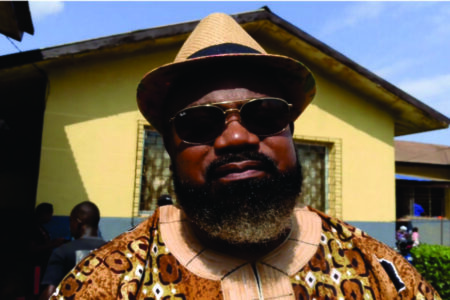LIBERIA’S AMBASSADOR TO Japan, Edward Appleton, has raised concern over what he calls the continued marginalization of women in the country, citing the lack of gender balanced opportunities in both government and private concession areas.
SPEAKING DURING A ceremony in Pleebo City on April 5, 2025, Ambassador Appleton, who also contested in the 2023 presidential elections, draws attention to the limited access women have to education, economic empowerment, and participation in political processes.
INDEED, WOMEN IN Liberia had been being left behind as they face significant barriers in accessing education, starting businesses, and getting involved in national decision-making, for which apparently he is calling on the Liberian government to prioritize gender equality and create avenues for women to play more active roles in shaping the nation’s future.
WHILE AMBASSADOR APPLETON raised a noble concern regarding gender equality, his assertions that women in Liberia though being left behind are marginalized does not fully reflect the current reality as we are proud to state on record that Liberian women have made remarkable strides in education, governance, and entrepreneurship outcomes that cannot be ignored.
LIBERIA HAS A proud legacy of female leadership, beginning with Africa’s first elected female President, Ellen Johnson Sirleaf, today, women continue to serve in key government positions, including the Legislature, Executive and Judiciary.
SEVERAL MINISTRIES, AGENCIES, and diplomatic missions are led or significantly staffed by women, reflecting a growing culture of inclusion and meritocracy as well as in the private sector, Liberian women are driving business innovations, leading enterprises in finance, agriculture, retail, and technology.
MICROFINANCE INSTITUTIONS AND women-led cooperatives have also empowered thousands of rural and urban women to become financially independent and community leaders while in education, challenges remain though female enrollment in schools has steadily increased due to national policies promoting girls’ education, such as the Girls’ Education National Policy and international partnerships.
RATHER THAN PAINTING a picture of hopeless marginalization, it is more accurate and constructive to recognize the progress that has been made, acknowledge the areas that still need attention, and work collaboratively to continue that upward trend.
BE AS IT may, women in Liberia are not waiting for opportunities they are creating them therefore, the focus should now be on strengthening existing frameworks and amplifying success stories to inspire the next generation of Liberian women to lead, innovate, and thrive.
Thanks To YouMr. Ambassador,But We Beg To Differ
